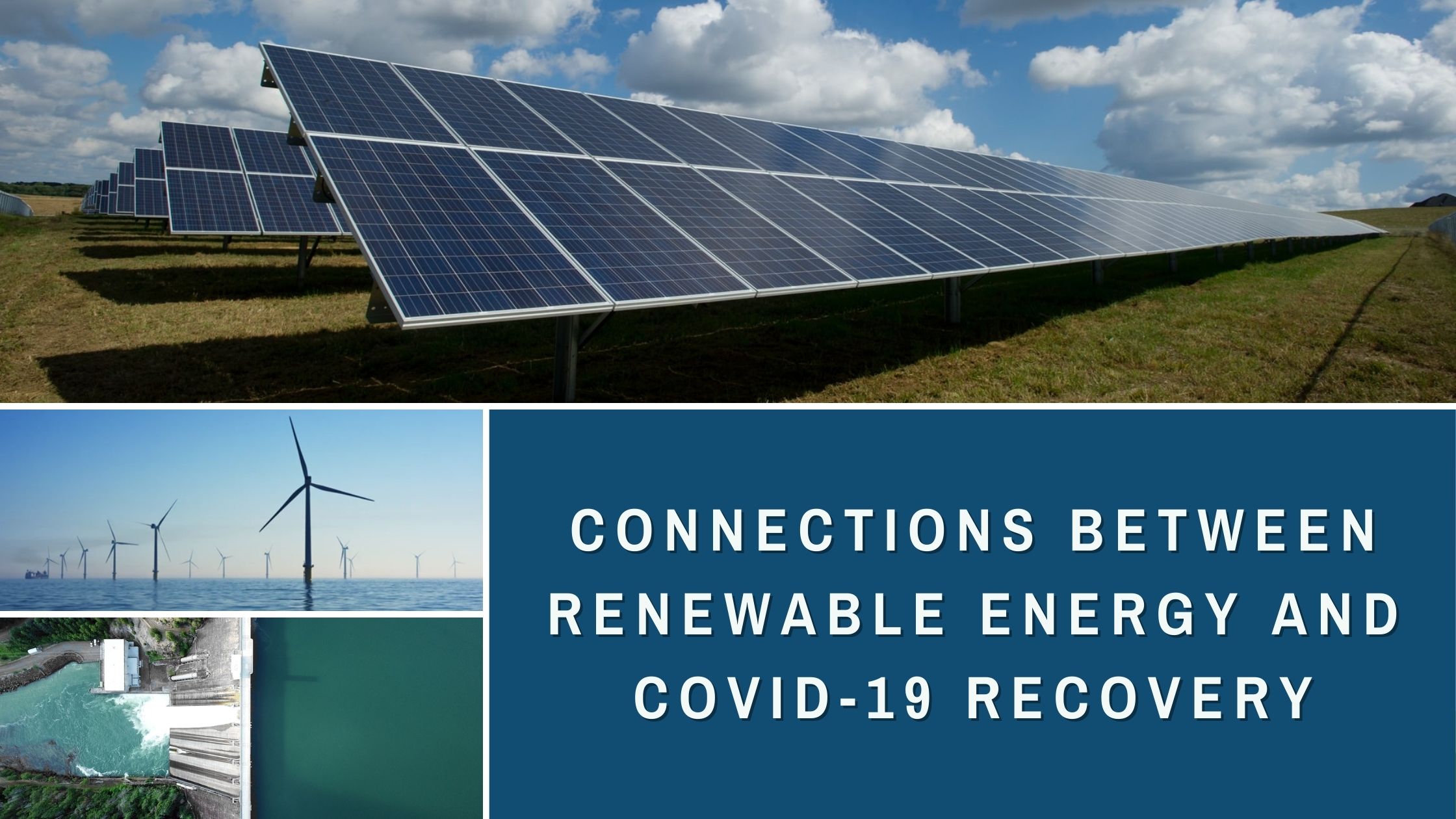


There’s no question that the COVID-19 pandemic changed the course of modern life around the world, on several levels. But there’s some good news in the realm of pandemic-related changes: For instance, the renewable energy industry received a much-needed boost in the wake of COVID-19.
According to Power Technology, in fact, U.S. renewable energy consumption grew by 40% in the early days of the pandemic. And while there's no irrefutable way to determine if the coronavirus was directly responsible for the uptick in popularity of renewable energy, a strong correlation exists. At the very least, the pandemic served to highlight the true scope of climate change, which is significant, and how alternative energy can alleviate some of the negative effects of the phenomenon.
Experts believe that a clean energy revolution could help promote a healthier future, and the time is ripe for governments to take action. In terms of public health, renewable energy provides a welcome alternative to harmful emissions and other pollutants. And as we continue to recover from the pandemic, both physically and economically, it's important to find actionable solutions in the name of public health.
Even before COVID hit the scene, solar power systems were widely hailed as a cost-effective alternative to traditional energy sources. And as the economic cost of COVID continues to rise, cities and municipalities around the world are turning to renewable energy to reduce infrastructure expenses. According to a Congressional Research Service report, the pandemic “negatively affected global economic growth in 2020 beyond anything experienced in nearly a century.”
Alongside COVID, climate change also poses a significant risk to the worldwide economy. If global temperatures continue to rise, climate change could ultimately wipe out about 18% of the world’s gross domestic product (GDP). However, it’s important to note that those numbers are a worst-case scenario, and represent what could happen if no action is taken to reduce the effects of climate change.
Thus, in response to the continued threats of both climate change and new COVID variants, renewable energy industry leaders must be prepared to step in and lead the charge towards a healthier world. Partnering with public health officials is a great place to start.
In every industry, supporting public health starts at the local level. Education and awareness of the effects of climate change, and how it connects to pandemic recovery efforts, can help fuel lasting change. And it’s easy to link the discussion of climate change and COVID recovery with renewable energy.
At the community level, solar energy experts can work to encourage sustainable habits among the public and business owners alike. City and government leaders can then further the cause by offering incentives to home and business owners who invest in alternative energy. For example, California officials set a national president in 2020 with the passage of Assembly Bill 178. The bill requires all new construction
Renewable energy leaders can also join forces with local educators and public health graduates to establish a teamwork effort early on. Professionals in every facet of public safety, from designated infection control officers to emergency management specialists, can help bring even greater awareness to climate change and the potential solutions that exist in renewable energy.
In terms of COVID-19 recovery, job creation is crucial to the process. The prevalence of pandemic-related job loss is “unprecedented,” reports the Bureau of Labor Statistics (BLS). If the U.S. is to have any chance of economic recovery, post-COVID, employment must be a top priority. Unemployment benefits just aren’t enough to sustain most citizens over the long term, and having a stable career is more important than ever as we face an uncertain future. In this way, the renewable energy industry can again lead the way towards stabilizing the global economy, by creating jobs.
Within the renewable energy industry, potential jobs run the gamut from installation professionals and public health officials to engineers tuned into the latest technologies. Industry leaders are continuously looking for ways to improve solar energy efficiency while reducing costs for consumers and businesses alike. In recent years, researchers have discovered more efficient ways to trap infrared light in solar cells, as well as developed a method in which surface reflectance was greatly reduced, boosting panel efficiency.
As such, continued advancements in renewable energy system components can provide job security for those who need it most.
Pandemic recovery is an ongoing process, and every industry must adapt to continuous changes in the name of public health. Within the realm of renewable energy, leaders can help further pandemic recovery efforts in many ways, beginning with education. Cultivating awareness about what’s at stake, in terms of public health and the global economy, may catalyze a cleaner, healthier future.
About the Author: Amanda Winstead is a writer focusing on many topics including technology and sustainability. Along with writing she enjoys traveling, reading, working out, and going to concerts. If you want to follow her writing journey, or even just say hi you can find her onTwitter.
Photo by American Public Power Association on Unsplash, Nicholas Doherty on Unsplash, Dan Meyers on Unsplash
